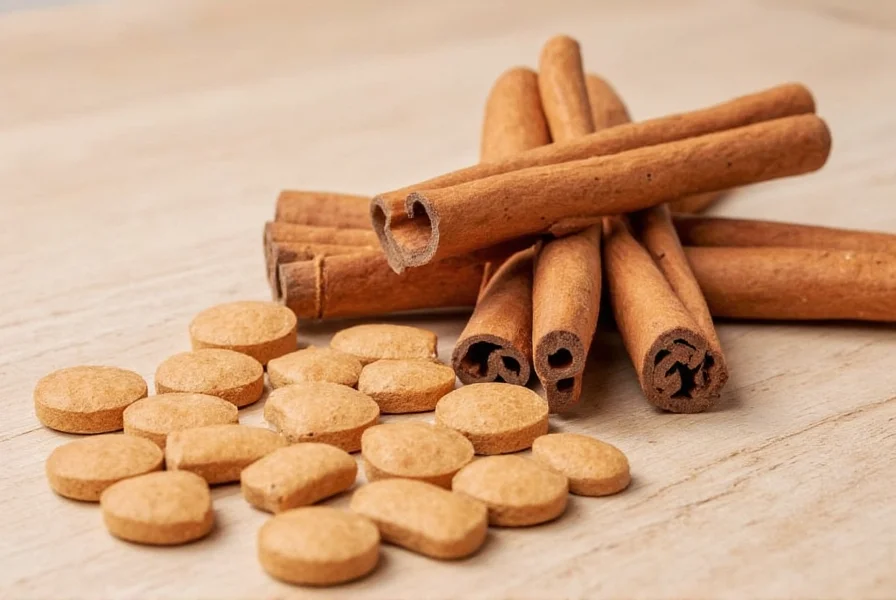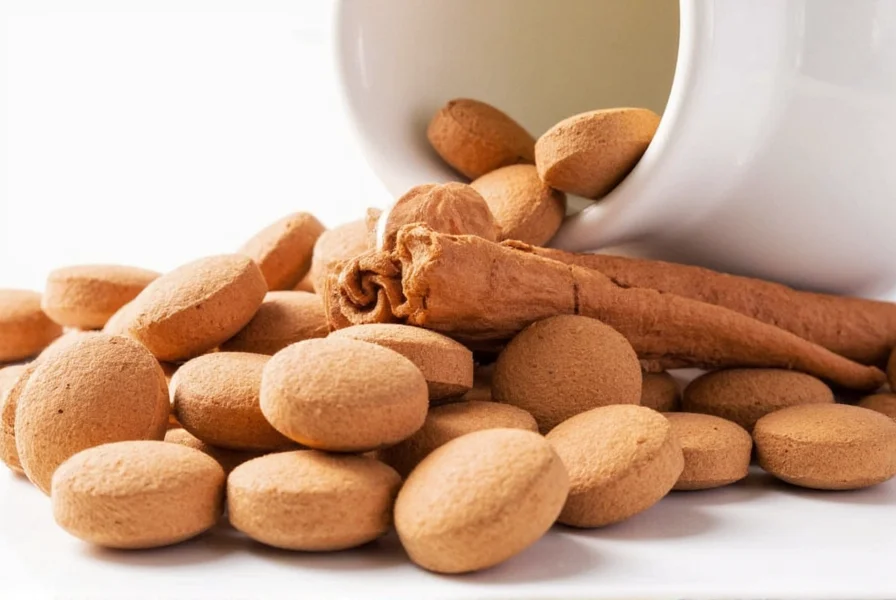Cinnamon tablets have gained popularity as a convenient way to incorporate this ancient spice into modern wellness routines. Unlike culinary cinnamon, these supplements deliver standardized doses of bioactive compounds like cinnamaldehyde and polyphenols. Understanding their actual benefits, limitations, and proper usage requires examining current scientific evidence rather than marketing claims.
Understanding Cinnamon Varieties in Supplement Form
Not all cinnamon is created equal when it comes to supplements. The two primary types found in tablet form differ significantly in composition and safety profiles:
| Characteristic | Ceylon Cinnamon | Cassia Cinnamon |
|---|---|---|
| Scientific Name | Cinnamomum verum | Cinnamomum cassia |
| Coumarin Content | Very low (0.004-0.1%) | High (2.15-6.97%) |
| Common in Supplements | Less common, premium option | Most widely available |
| Recommended Daily Limit | No established limit | Under 2.5g (due to coumarin) |
| Cost | Higher | Lower |
Understanding the difference between Ceylon and Cassia cinnamon tablets is crucial for safe supplementation. While Cassia dominates the market due to lower costs, its high coumarin content raises safety concerns with long-term use. Ceylon cinnamon, sometimes called "true cinnamon," contains negligible coumarin levels, making it preferable for regular consumption.
Evidence-Based Health Benefits of Cinnamon Tablets
Research on cinnamon supplements reveals several potential benefits, though results vary in strength and consistency:
Blood Sugar Management
Multiple clinical studies suggest cinnamon tablets may improve insulin sensitivity and lower fasting blood glucose levels. A 2022 meta-analysis published in Nutrition Reviews found that cinnamon supplementation reduced fasting glucose by approximately 15 mg/dL in prediabetic and type 2 diabetic patients. However, effects were modest compared to pharmaceutical interventions, and individual responses vary significantly.
Antioxidant Properties
Cinnamon ranks among the most antioxidant-rich spices. The ORAC (Oxygen Radical Absorbance Capacity) value of cinnamon is approximately 267,536 μmol TE/100g, far exceeding many fruits and vegetables. These antioxidants may help combat oxidative stress, though the clinical significance of this effect in tablet form requires more research.

Anti-Inflammatory Effects
Test tube and animal studies demonstrate cinnamon's ability to reduce inflammatory markers like TNF-α and IL-6. Human trials are more limited, but a 2021 study in Complementary Therapies in Medicine showed reduced CRP levels in participants taking 1,000 mg daily for 12 weeks. More research is needed to confirm these effects in diverse populations.
Realistic Expectations and Limitations
Despite promising research, important limitations exist regarding cinnamon tablet benefits:
- Effects on blood sugar are modest and shouldn't replace diabetes medication
- Most studies use small sample sizes and short durations (8-16 weeks)
- Significant variability exists between supplement formulations
- No conclusive evidence for weight loss benefits despite popular claims
- Long-term safety data beyond 6 months is limited
Proper Usage Guidelines for Cinnamon Tablets
For those considering cinnamon supplements, evidence-based usage recommendations include:
Dosage Considerations
Research suggests effective doses typically range from 500 mg to 2,000 mg daily, divided into multiple doses. Starting with 500 mg once daily allows assessment of tolerance before increasing. Higher doses don't necessarily provide additional benefits and may increase risk of side effects, particularly with Cassia varieties.
Safety Profile and Potential Interactions
Cinnamon tablets are generally well-tolerated but may cause:
- Mild digestive upset (nausea, diarrhea)
- Oral irritation or mouth sores with prolonged use
- Increased bleeding risk when combined with anticoagulants
- Lowered blood sugar that may interact with diabetes medications
Individuals with liver conditions should exercise caution with Cassia cinnamon due to coumarin content. Those scheduled for surgery should discontinue use at least two weeks beforehand due to potential bleeding risks.

Selecting Quality Cinnamon Supplements
Not all cinnamon tablets deliver what they promise. When choosing a product:
- Verify the cinnamon species (Ceylon preferred for regular use)
- Check for third-party testing certifications (USP, NSF, ConsumerLab)
- Look for standardized extracts specifying cinnamaldehyde content
- Avoid products with excessive fillers or unnecessary additives
- Consider enteric-coated tablets if experiencing digestive sensitivity
Reputable manufacturers provide transparent information about sourcing and testing. Be wary of products claiming miraculous results or extremely high potency without supporting evidence.
Integrating Cinnamon Tablets into a Holistic Approach
Cinnamon tablets work best as part of a comprehensive health strategy rather than a standalone solution. For blood sugar management, they should complement rather than replace:
- Regular physical activity
- Balanced nutrition focusing on whole foods
- Adequate sleep and stress management
- Medical supervision for diagnosed conditions
The most significant benefits occur when cinnamon supplementation supports, rather than substitutes for, foundational healthy habits. Those with diagnosed medical conditions should always consult healthcare providers before starting new supplements.











 浙公网安备
33010002000092号
浙公网安备
33010002000092号 浙B2-20120091-4
浙B2-20120091-4